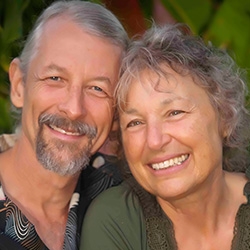

Search Results: change
-
Roxy Manning emphasizes positive relationships in parenting, highlighting acceptance, understanding, and compromise. She stresses the importance of being aware of one's needs, attuning to the other person's needs, fostering trust, and encouraging open communication, especially with children. The approach involves a balance between meeting both sets of needs for a healthier dynamic.
-
-
This explores four types of feedback: destructive, constructive, by demonstration, and dialogue.
-
Fear in dealing with a neighbor's 'wastebasket talk.' Only leaving or interrupting stops the flow.
-
Strengthen empathy, goodwill, and authenticity at home, meeting life's challenges with grace.
-
Less than 2 weeks ago from the time I’m writing this letter, Hamas militants crossed from Gaza into Israel and killed more than 1,300 people, most of them civilians. Israel then retaliated and killed over 3,000 Gazans, most of them civilians. The death rate continues to increase every day.
-
Trainer Tip: In Compassionate Communication, we consider needs to be universal. That means that while we all have the same needs, such as for love, support, shelter, food, joy, caring, etc., we choose different ways to meet our needs.
-
Learn to design role plays that inspire, engage and deepen learning for everyone.
-
You've probably witnessed and participated in role plays that were powerful tools for inspiration, integration, or healing. You've likely also been in contexts where role plays fell flat, leaving people frustrated, confused, or disengaged. If you're sharing NVC with others – or are envisioning yourself going there in the future – you'll want to take this class, where the focus is on how to increase the chances of having role plays that serve a clear purpose, engage an entire group, and support the deepest learning possible for all.
-
- Access, follow and train your intuition: how to know without knowing;
- Navigate difficult situations with care for all through an active awareness of your own power, as well as other sources of power in the room;
- Remain aware of who speaks and who doesn’t, of those whose pain is invisible – and what you can do about it;
- Walk towards someone presenting a challenge to a group you are facilitating, while continuing to hold care for the entire group, and more.
-
Trainer Tip: Whether there is the potential of physical or emotional violence, listening deeply to the underlying needs of the people in conflict can be swift, direct, and healing. Look for opportunities to defuse conflicts by reflecting the feelings and needs of the other person.
-
Trainer Tip: When have you responded in a way you didn’t want? How could you have handled that situation differently? What would have better met your needs? Try not to judge your behavior, but learn from it. Each time we review our actions, we can learn something, become more adept at new skills, and come closer to our ideal. We can do this with the learning curve of practicing translating people’s words into feelings and needs.
-
Bring nonviolence to life through facilitation, integrate love and courage in every group process.
-
We’re in the throws of a particularly worrisome presidential election in the USA. Combined with world affairs and the global warming of our earth, we are seeing a level of despair higher than I ever remember experiencing.
As a result, the level of blaming others, judgments, dis-ease, and lack of trust that I experience or hear about every day is at an all-time high. I think there’s so much fear that we’ve begun lashing out at others, and rage is either visible or ever lurking.
-
In lasers, light bounces between the mirrors, with each pass the light grows more intense. Our minds work similarly. Because of the "mirror" effect, where we can react to our reactions to our reactions to our reactions (and so on), changing our thought pattern even modestly at every level of reaction, can dramatically affect our ultimate experience. Usually the greatest amplifiers are the ones we notice the least. Learn what to notice -- to amplify more love rather than pain.
-
Sylvia teaches emotion management, connecting feelings to needs, and "Screaming in Giraffe."
-
Learn how Nonviolent Communication (NVC) can improve the quality of your personal and professional relationships, one interaction at a time.
-
Learn how unacknowledged fear can seem like aggression and a way to shift it.
-
-
Ask the Trainer: Get guidance on working with enemy images and exercises that bring relief.
Quick Links

Stay in Touch!
We value your privacy, won't share your email address and you can easily unsubscribe any time.


















